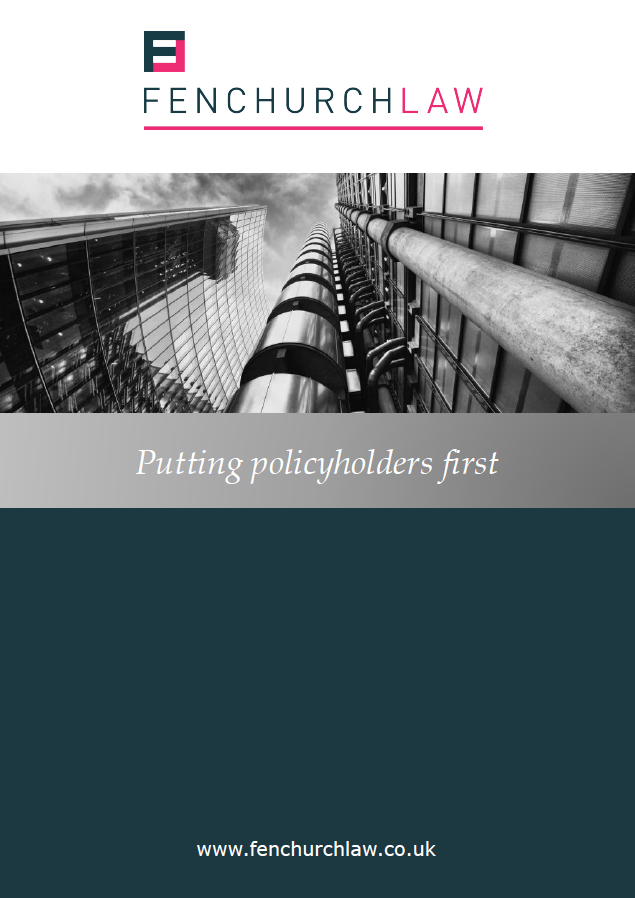
BAE Systems Pension Funds – v – RSA
Third Parties (Rights against Insurers) Act 2010
An analysis of the first judgment on the Third Parties (Rights against Insurers) Act 2010 (‘the Act’)
BAE Systems Pension Funds Trustees Limited (‘the Claimant’) brought proceedings against 4 Defendants following the construction of a large warehouse. The damages sought exceeded £10 million.
Protective proceedings were issued against the Defendants on 24 August 2016. In February 2017, the third Defendant, Twintec Limited (‘Twintec’), went into administration, and a few weeks later Twintec’s solicitors revealed that it was insured by RSA. The Claimant accordingly applied to join RSA to the claim.
RSA resisted the application on the grounds that:
- They were not in fact liable to indemnify Twintec for the claim;
- The policy and any dispute as to coverage was subject to French law and must be determined by arbitration or by the French courts.
The First Ground
It was uncontroversial that Twintec had become a ‘relevant person’ under section 1 of the Act i.e. it had incurred a liability to the Claimant, and had become insolvent in one of the ways specified by the Act.
Section 2 entitled the Claimant to bring proceedings directly against RSA seeking a declaration as to Twintec’s liability and/or a declaration as to RSA’s potential liability to the Claimant.
RSA argued, somewhat ambitiously, that Twintec was not entitled to indemnity because of an exclusion for pre-existing circumstances, and, if there was thus no cover, section 2 was not engaged.
The Judge, Mrs Justice O’Farrell DBE, found that Section 2 was engaged even where there was a dispute as to coverage. This did not require the Claimant to establish that there was a relevant insurance policy which necessarily responded to the loss – all that was needed was for the Claimant to make a claim that there was such a policy.
RSA argued that a number of difficulties could arise if Section 2 was engaged where cover was disputed. In particular, they suggested that this could pave the way for any insurer to be joined to an action, or possibly an insurer who had provided cover for a previous irrelevant period. The Judge gave short shift to this point, and stated that the Court, in these circumstances, could simply strike out those proceedings as having no prospect of success. The Judge’s decision was obviously right. Were it otherwise, the 2010 Act would not avail a Claimant where an insurer had denied indemnity.
RSA also suggested that there was an irreconcilable conceptual difficulty insofar as they would be faced with defending a claim for a declaration, when, in their view, the Claimant did not have the right to step into Twintec’s shoes. Again the Judge was unpersuaded, and found that it was entirely a matter for RSA as to the submissions they wished to make in response to the Claimant’s claim (and whether they wished to take any substantive part in the proceedings at all).
The Second Ground
The policy contained two dispute resolution clauses. The first clause provided for any dispute between the parties to be referred to the French courts and “shall be subject exclusively to French legislation”.
The second clause provided that, in the event of a dispute regarding the activation of cover, the parties agreed to refer their disputes to two arbitrators chosen by each party.
The claimant argued that the coverage dispute was caught by neither of the clauses. RSA, by contrast, argued that the coverage dispute was caught by both clauses.
The Judge was satisfied that the coverage dispute would be covered by one or other of the clauses i.e. it should be decided by either the French courts, or by arbitration. It did not, however, affect her finding as to whether section 2 was engaged.
The Result
The Judge granted the Claimant’s application to join RSA to the Claim, and, somewhat predictably, made it clear that in order to engage section 2 of the Act, a Claimant need not establish, as a pre-condition, that there is valid coverage. Were it otherwise the case, insurers would have carte blanche to reject any claims made against insolvent insureds.
Alexander Rosenfield is an associate at Fenchurch Law
Other news
Timing is everything – Makin v QBE and the cost of not complying with a condition precedent
3 July 2025
This recent decision from the High Court provides a powerful reminder of the consequences of not complying with a…
You may also be interested in:
Archives
Categories
- Uncategorized
- The Good, the Bad and the Ugly
- Fenchurch Law Webinars
- Stonegate
- Newsletter
- Events
- Webinars
- Comparing German and English Insurance Law – A Series
- Construction Risks
- Operations
- Business Development
- Construction & Property Risks
- News
- International Risks
- Legislation
- Financial & Professional Risks
- Case Law
- Professional Risks
- Press Release



